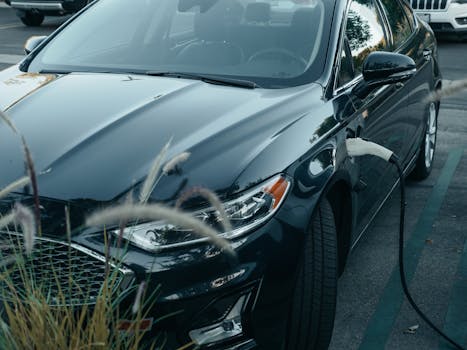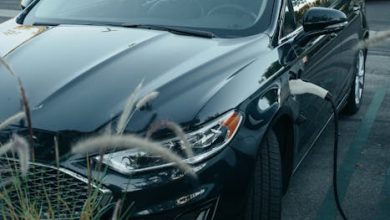
As a car owner, the thought of being involved in a car accident can be a daunting and worrisome prospect. This concern becomes even more significant when you consider the financial implications of crashing a financed car. In such a situation, having the right insurance coverage can make a world of difference. It’s essential to understand the different types of insurance coverage available and how they can protect you in the event of an accident. In this article, we will explore the impact of crashing a financed car with insurance, covering everything you need to know about comprehensive coverage, collision coverage, gap insurance, legal implications, liabilities, and the steps to take after a car accident.
Importance of Comprehensive Coverage
Comprehensive coverage is an insurance policy that protects your car against damage caused by factors other than collisions. It covers expenses related to theft, vandalism, natural disasters, and even hitting an animal on the road. Comprehensive coverage is generally optional, but it is highly recommended, especially for financed cars.
One of the main benefits of comprehensive coverage is that it provides financial protection in situations where you might have otherwise faced significant out-of-pocket expenses. For example, if your financed car is stolen and not recovered, comprehensive coverage will help cover the remaining balance on your loan. Without comprehensive coverage, you would be responsible for paying off the car loan despite the vehicle no longer being in your possession.
It’s important to note that comprehensive coverage comes with certain coverage limits and deductible amounts. These limits determine the maximum amount your insurance company will pay in the event of a claim, while the deductible is the amount you need to pay out of pocket before your insurance coverage kicks in. It’s crucial to review these limits and deductibles when considering comprehensive coverage and choose the options that align with your financial situation.
Collision Coverage and Its Benefits
Collision coverage is the type of insurance that protects your vehicle in the event of a collision with another vehicle, object, or rollover. Unlike comprehensive coverage, collision coverage is typically required by lenders when financing a car. It ensures that the lender’s investment is protected in the event of an accident that damages the financed car.
While comprehensive coverage focuses on non-collision-related damages, collision coverage specifically covers damages resulting from accidents. This type of coverage is necessary to repair or replace your car if it gets damaged or totaled in an accident, regardless of who is at fault.
One significant difference between comprehensive coverage and collision coverage is the scenarios they cover. Comprehensive coverage protects against a wide range of non-collision incidents, while collision coverage only protects against accidents involving the financed car. To ensure comprehensive protection, it is recommended to have both comprehensive and collision coverage on your financed car.
Collision coverage comes with its own set of coverage limits and deductibles that should be carefully considered. The coverage limits specify the maximum amount your insurance company will pay for repairs or replacement, while the deductible is the amount you are responsible for paying. It’s important to select the appropriate limits and deductibles that align with your financial situation and ensure you can afford to cover the deductible should an accident occur.
Gap Insurance Explained
If you have a financed car, you may benefit from gap insurance. Gap insurance is designed to protect car owners from facing financial hardship in the event of a total loss or theft of their car. It bridges the “gap” between the actual cash value of the car and the amount remaining on the loan.
When you initially finance a car, it starts depreciating as soon as you drive it off the lot. However, the loan balance remains the same. In the event of a total loss, such as a severe accident where the car is deemed irreparable, insurance companies typically pay the actual cash value of the car at the time of the loss. This value is determined by factors such as age, condition, and market value.
Unfortunately, the actual cash value is often lower than the remaining loan balance. This leaves the car owner responsible for paying off the remaining loan despite not having the car anymore. This is where gap insurance comes in. It covers the difference between the actual cash value of the car and what you owe on the loan, protecting you from being financially burdened by the shortfall.
Gap insurance is particularly significant for individuals with financed cars because it helps protect against situations where the loss of the car would leave them with outstanding debt. consider gap insurance in order to protect themselves financially.
Steps to Take After a Car Accident
No one wants to be in a car accident, but it’s important to be prepared and know what steps to take if the unfortunate happens. Here is a step-by-step guide to help you navigate the aftermath of a car crash:
-
Ensure Safety: First and foremost, ensure that you and anyone else involved in the accident are safe. Move to a safe location if possible and turn on hazard lights to alert other drivers.
-
Check for Injuries: Assess yourself and others for any injuries and call emergency services if needed. It’s crucial to prioritize medical attention for anyone who may be hurt.
-
Call the Police: If there are injuries, significant damage, or disputes about fault, it’s important to call the police and report the accident. They will document the incident and provide an official accident report.
-
Exchange Information: Exchange contact and insurance information with all parties involved in the accident. This includes names, phone numbers, addresses, and insurance policy details.
-
Document the Scene: Take photos of the accident scene, the damages to all vehicles involved, and any visible injuries. This documentation will be valuable when filing an insurance claim.
-
Report the Accident: Contact your insurance company as soon as possible to report the accident. They will guide you through the claims process and provide instructions for getting your car repaired.
-
Seek Medical Attention: Even if you don’t think you’re seriously injured, it’s important to seek medical attention. Some injuries may not be immediately apparent and can worsen over time.
-
Follow Insurance Procedures: Follow the instructions provided by your insurance company for obtaining repair estimates, filing a claim, and getting your car repaired. They may also arrange for an adjuster to assess the damages.
-
Keep Records: Keep a record of all documentation related to the accident, including medical bills, repair estimates, and communication with your insurance company. These records will be helpful in case of any disputes or complications.
-
Be Mindful of Legal Deadlines: Understand the statute of limitations for filing a lawsuit if necessary. It’s essential to be aware of any time restrictions to protect your legal rights.
By following these steps, you can ensure that you take the necessary actions to protect yourself and navigate the post-accident process effectively. Keep in mind that every accident is unique, and it’s crucial to consult with your insurance company and legal counsel for personalized guidance based on your specific situation.
Financial Ramifications of Crashing a Financed Car
Being involved in a car accident can have significant financial implications, especially when you have a financed car. The impact can vary depending on your insurance coverage and the state of your finances. Here are some key financial considerations to be aware of:
-
Insurance Deductibles: In the event of an accident, you will likely need to pay your insurance deductible before your coverage kicks in. Deductibles can range from a few hundred to several thousand dollars, depending on your policy. It’s essential to be prepared to cover this expense out of pocket before repairs can proceed.
-
Insurance Premiums: Depending on the circumstances and your insurance policy, filing a claim for a car accident can lead to an increase in your insurance premiums. Insurance companies consider accidents as indicators of risk, which can result in higher premiums when it’s time to renew your policy.
-
Remaining Loan Balance: If your financed car is deemed a total loss, insurance companies typically pay the actual cash value of the vehicle at the time of the loss. This amount may be lower than the remaining loan balance, leaving you responsible for paying off the difference. It’s essential to consider gap insurance to protect against this potential shortfall.
-
Out-of-Pocket Expenses: Even with insurance coverage, there may be out-of-pocket expenses associated with the accident. These can include towing fees, rental car costs, medical expenses, and any deductibles or coverage gaps not covered by insurance.
It’s crucial to review your insurance policy, understand the financial implications of a car accident, and plan accordingly. By having the right coverage and being financially prepared, you can mitigate the potential impact on your finances.
Legal Implications and Liabilities
Being involved in a car accident can also have legal implications and potential liabilities. Understanding these factors is crucial to protect your legal rights and financial well-being. Here are some important points to consider:
-
Liability Determination: In car accidents, one party is typically found liable for the accident. This determination is usually made by insurance companies, police reports, or civil courts. If you are found liable, you may be responsible for covering the damages and injuries of the other party involved.
-
Potential Lawsuits: In some cases, the other party involved in the accident may decide to file a lawsuit seeking additional compensation for damages. This can lead to costly legal expenses and potential financial burdens.
-
Insurance Coverage: Having the right insurance coverage can protect you from legal actions and lawsuits. Liability coverage helps cover the damages and injuries of the other party if you are found liable. It’s essential to have adequate liability coverage to protect your assets and financial well-being.
-
Legal Consequences: Depending on the severity of the accident and the circumstances, there may be legal consequences involved, such as fines, license suspension, or even criminal charges. It’s important to comply with legal requirements and cooperate with authorities to ensure you fulfill your legal obligations.
To protect yourself legally, it’s crucial to have the right insurance coverage, follow traffic laws, and take appropriate actions after an accident. Consult with legal counsel if needed to understand your rights and obligations in your specific situation.
FAQs
Does insurance cover the full amount owed on a financed car after an accident?
No, insurance typically covers the actual cash value of the car at the time of the loss. This amount may be lower than the remaining loan balance, leaving the car owner responsible for paying off the difference.
What is the difference between uninsured motorist coverage and underinsured motorist coverage?

Uninsured motorist coverage protects you if you are involved in an accident with a driver who does not have insurance. Underinsured motorist coverage, on the other hand, covers you if you are involved in an accident with a driver whose insurance coverage is insufficient to cover the full extent of your damages.
Will my insurance rates increase after I file a claim for a car accident?

Filing a claim for a car accident can lead to an increase in your insurance premiums. Insurance companies consider accidents as indicators of risk, which can result in higher premiums when it’s time to renew your policy.
Is it necessary to report all accidents to the police, even minor ones?
While not all accidents may require police involvement, it’s generally advisable to report all accidents to the police. A police report can provide an official record of the accident, which can be valuable when filing an insurance claim or pursuing legal action if needed.
How does the deductible for insurance coverage work in the event of a car crash?
The deductible is the amount you need to pay out of pocket before your insurance coverage kicks in. In the event of a car crash, you will typically need to pay the deductible before your insurance company covers the remaining expenses.
Can I choose where to get my car repaired after an accident, or does the insurance company decide?
In most cases, you have the right to choose where to get your car repaired after an accident. However, your insurance policy may specify preferred repair shops or offer incentives for using specific facilities.
What happens if I can’t afford to pay the deductible for car repairs after an accident?
If you cannot afford to pay the deductible, you may be able to work out a payment plan with your insurance company or explore alternative options such as taking out a loan or using a credit card to cover the deductible.
Do insurance companies provide rental cars while my vehicle is being repaired?
Many insurance companies offer rental car coverage as part of their insurance policies. However, the availability and specific terms of rental car coverage may vary depending on your insurance policy and the circumstances of the accident.
Will insurance cover medical expenses for injuries sustained in a car accident?
If you have the appropriate coverage, your insurance policy can cover medical expenses for injuries sustained in a car accident. This coverage typically falls under personal injury protection or medical payments coverage.
Final Take
In conclusion, crashing a financed car can have significant financial implications. Having the right insurance coverage is crucial for protecting yourself in the event of an accident. Comprehensive coverage helps protect against non-collision-related damages, while collision coverage specifically covers accidents involving your financed car. Gap insurance is recommended for individuals with financed cars to bridge the coverage gap between the actual cash value of the car and the loan balance. It’s important to follow the necessary steps after a car accident, document the incident, and report it to your insurance company promptly. Crashing a financed car can result in financial responsibilities such as deductibles, potential increases in insurance premiums, and the possibility of owing more on the loan than the car’s value. Legal implications and liabilities can also arise from car accidents, highlighting the importance of having the right insurance coverage to protect against legal actions. By understanding the impact of crashing a financed car with insurance and taking the necessary precautions, you can protect yourself financially and navigate the aftermath of a car accident with confidence.



